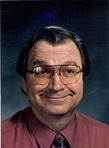David Schwinghammer's Blog - Posts Tagged "communing-with-nature"
Leave No Trace
LEAVE NO TRACE is about a boy who suddenly appears after being missing for ten years. He walks out of the Boundary Water Canoe Area in Northern Minnesota, one of the most pristine wilderness areas in the U.S.
Lucas Blackthorne's father, Josiah, is still missing. Lucas gets in trouble for breaking and entering an outfitter's store, attempted robbery and two counts of aggravated assault on the owners. Lucas is institutionalized because he can't or won't talk about where he's been or where his father is.
Maya Stark, a speech pathologist at the mental facility, is assigned the case. Gradually we learn that Maya was a former patient at the same facility. Eventually he says, “I know you.” We learn what that means later, but at least she's got him talking.
Maya works at getting a search party to find Josiah Blackthorn. Dr. Mehta, her superior finally agrees, but Lucas isn't comfortable among all these people and Dr. Mehta gets hurt. The search is cancelled.
Maya decides to take matters into her own hands, risking her career and possibly being charged with a felony.
Mostly we get Maya's first person account of what happens in the story, but once or twice, Josiah speaks for himself. He loves Lucas more than himself, and he teaches him how to survive in the wilderness, but we're not sure if Lucas actually knows where Josiah is or if he's still alive.
Maya was also abandoned by her mentally ill mother and she wants to know what happened to her; she begins to suspect Josiah Blackthorn, once she learns Josiah and Lucas had stayed in her mother's cabin for a time, hence the above statement, “I know you.” Maya looks a lot like her mother.
Author Mindy Mejia makes a valiant effort at describing the BWCA, but she should've tried harder to make it a character in the story. It's a beautiful place, but it can kill you if you don't know what you're doing. It's called the Boundary Water Canoe Area because motorized vehicles are not allowed and I imagine they feel the same way about technology in general. It's essentially a string of lakes, extending all the way into Canada, although it goes by a different name there. I chose this book because it was set in the BWCA, but I have a feeling Mejia didn't know it as well as she should have. She gives credit to lots of different people in her acknowledgments, and I imagine they're the source of her descriptions. She does mention fellow voyagers who know how to make a mean “bear bag” so we know she did stick her toe in the water. One source she does mention is A YEAR IN THE WILDERNESS: BEARING WITNESS IN THE BOUNDARY WATERS by Amy and Dave Freeman.
Lucas Blackthorne's father, Josiah, is still missing. Lucas gets in trouble for breaking and entering an outfitter's store, attempted robbery and two counts of aggravated assault on the owners. Lucas is institutionalized because he can't or won't talk about where he's been or where his father is.
Maya Stark, a speech pathologist at the mental facility, is assigned the case. Gradually we learn that Maya was a former patient at the same facility. Eventually he says, “I know you.” We learn what that means later, but at least she's got him talking.
Maya works at getting a search party to find Josiah Blackthorn. Dr. Mehta, her superior finally agrees, but Lucas isn't comfortable among all these people and Dr. Mehta gets hurt. The search is cancelled.
Maya decides to take matters into her own hands, risking her career and possibly being charged with a felony.
Mostly we get Maya's first person account of what happens in the story, but once or twice, Josiah speaks for himself. He loves Lucas more than himself, and he teaches him how to survive in the wilderness, but we're not sure if Lucas actually knows where Josiah is or if he's still alive.
Maya was also abandoned by her mentally ill mother and she wants to know what happened to her; she begins to suspect Josiah Blackthorn, once she learns Josiah and Lucas had stayed in her mother's cabin for a time, hence the above statement, “I know you.” Maya looks a lot like her mother.
Author Mindy Mejia makes a valiant effort at describing the BWCA, but she should've tried harder to make it a character in the story. It's a beautiful place, but it can kill you if you don't know what you're doing. It's called the Boundary Water Canoe Area because motorized vehicles are not allowed and I imagine they feel the same way about technology in general. It's essentially a string of lakes, extending all the way into Canada, although it goes by a different name there. I chose this book because it was set in the BWCA, but I have a feeling Mejia didn't know it as well as she should have. She gives credit to lots of different people in her acknowledgments, and I imagine they're the source of her descriptions. She does mention fellow voyagers who know how to make a mean “bear bag” so we know she did stick her toe in the water. One source she does mention is A YEAR IN THE WILDERNESS: BEARING WITNESS IN THE BOUNDARY WATERS by Amy and Dave Freeman.
Published on September 28, 2018 10:37
•
Tags:
boundary-waters-canoe-area, character-study, communing-with-nature, fiction, mental-illness, mystery



